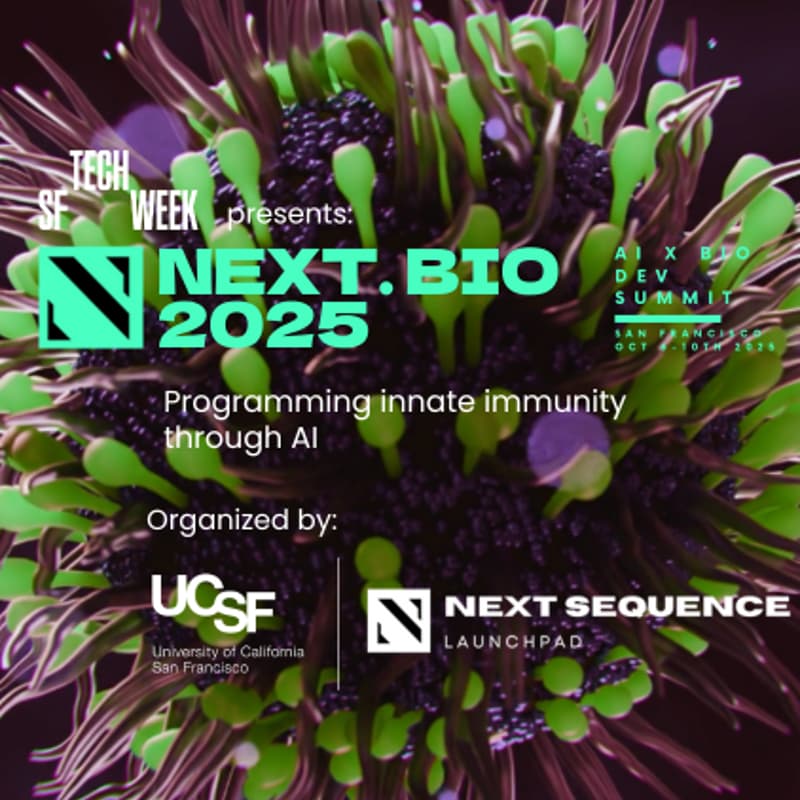

NEXT.BIO 2025 - Programming innate immunity through AI
In October 2025, A16Z #SFTechWeek will once again take over San Francisco. We are organizing NEXT.BIO, a world-class week long tech conference featuring the best startups, industry leaders and investors in AI x BIO across a series of TechTalks, and a unique Hackathon and DEMO Day 🚀
We are one week away from the launch of our TechTalks Series during #SFTechWeek and we couldn't be more thrilled.
You can find here speakers that are going to be joining us for this track on : Immunology:
. "Rejuvenating the Immune System with Precision AI: From Biomarkers to Programmable Medicines", Celinebio
. "Agnostic Pathogen Detection: elucidating pathogenic threats and identifying the patterns of disease spread", AgnoSci
We still have some slot left for speakers so feel free to reach out to us here with your talk title: [email protected]
For those you interested in joining us for the Global AI x BIO Hackathon Challenge by Next Sequence:
. Register under the Hackathon participants ticket here
. More on the Global AI x BIO Hackathon Challenge here
. Find past resources on Immunology themes and available datasets here
Finally, we are thrilled to unveil our amazing panel of speakers and judges coming on Oct 10th for our DEMO Day here.
For the startups interested in:
. Getting a chance to be selected to join the startups battlefield on DEMO Day, register under the Startup Battlefield participants ticket here
. Exhibiting your startup at one of the booth at the event, register under the Startup Booth here
See you soon !